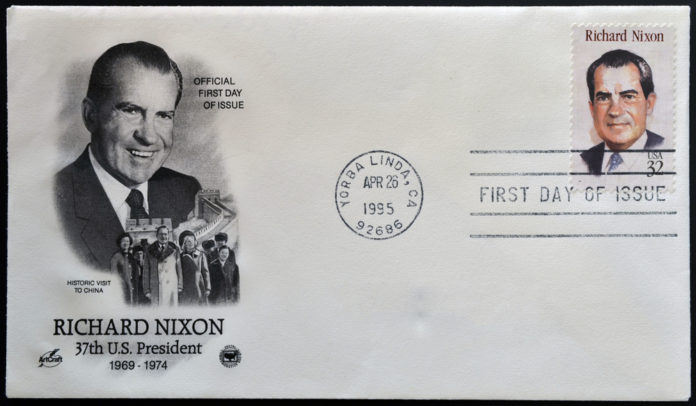THE MASS ARRESTS linked to President Richard Nixon’s War on Drugs continues to display its influence on U.S. policy.
Recently, an unreleased interview with Nixon aide, John Ehrlichman, surfaced bringing the controversial anti-drug effort of the 1970’s back in the spotlight.
In 1994, author Dan Baum was working on a book detailing the politics of drug prohibition. He conducted an interview with Ehrlichman. In a recent piece for Harper’s Magazine, Baum documented what Ehrlichman told him over 20 years ago:
“The Nixon campaign in 1968, and the Nixon White House after that, had two enemies: the antiwar left and black people. You understand what I’m saying? We knew we couldn’t make it illegal to be either against the war or black, but by getting the public to associate the hippies with marijuana and blacks with heroin, and then criminalizing both heavily, we could disrupt those communities. We could arrest their leaders, raid their homes, break up their meetings, and vilify them night after night on the evening news. Did we know we were lying about the drugs? Of course we did.”
The details from Ehrlichman have confirmed what many felt was Nixon’s true motivation. While the War on Drugs is often mocked and treated as a failure, its impact on policy is impossible to disregard. Federal mandatory minimum sentences are still keeping many behind bars for years for low level and non-violent offenses. Marijuana was classified as a Schedule One narcotic during the Nixon tenure, placing it in the same category of danger with heroin and LSD. It still remains on the list of Schedule One substances today.
Even as states are starting to legalize both medical and recreational marijuana, many law enforcement habits seem difficult to break. A new report by the Colorado Department of Public Safety showed that black and Hispanic minors are arrested at a disproportionate rate compared to young white Colorado residents.
The report highlighted a 52% rise in marijuana arrests for black minors from 2012-2014. The rate of Hispanic minors arrested for marijuana possession in Colorado during the same time rose 22%. Whites under the age of 18 arrested for marijuana possession dropped by 9%.
Non-white minors are not the only age group experiencing the increase in arrests. In 2012, black adults were arrested at twice the rate of white adults for marijuana possession. In 2014, black adults in Colorado, overall, were arrested at 3x the rate white adults.
The study shows that politics can have a drastic and long lasting impact on people. Change does seem to be on the way. The vast majority of Americans support marijuana reform. There has been considerable discussion regarding criminal justice reforms during this 2016 presidential election cycle and a DEA reclassification of marijuana could happen as early as this summer.










